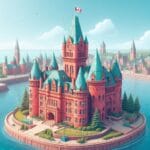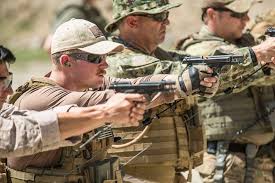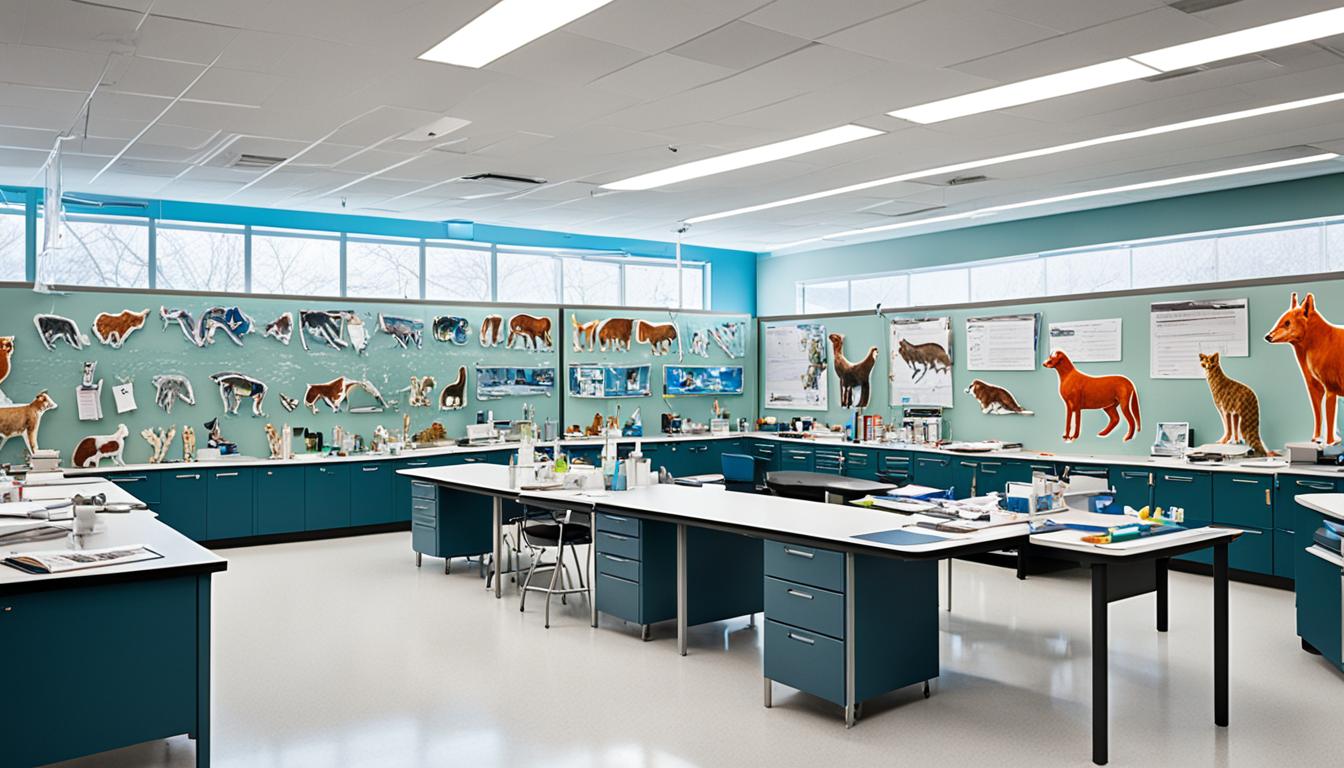Canada has a strong tradition of military training through prestigious academies and schools across the country. These institutions develop leadership, provide rigorous academics, and prepare officers and recruits for careers in the Canadian Armed Forces. Let’s explore the different types of Canadian military schools, their history and offerings, benefits of attending, and how to apply.
An Introduction to Canadian Military Training
Canada’s military colleges and schools have educated future leaders since 1876 with the founding of the Royal Military College of Canada (RMC). Today there are several institutions training officers, non-commissioned members, and cadets.
The main facilities include:
- Royal Military College of Canada: A degree-granting university that educates officer cadets and offers postgraduate degrees.
- Canadian Forces Leadership and Recruit School: Trains regular and reserve force non-commissioned members and officer recruits.
- Regional Cadet Training Centres: Provide leadership and training programs for youth aged 12 to 18 who are members of the Canadian Cadet Organizations.
Other notable schools focus on specific military domains like aviation, intelligence, and naval science. These institutions uphold strong traditions while evolving to address modern defence challenges.
Now let’s explore some of Canada’s major military academies and schools in more detail:
Royal Military College of Canada: Canada’s Military University
The Royal Military College of Canada (RMC) is a fully accredited university located on Point Frederick peninsula near Kingston, Ontario. Deemed “Canada’s Westpoint”, it educates officer cadets through rigorous programs focused on academics, leadership development, athletics, and military training.
History
RMC was established on May 1, 1876 through an Act of Parliament to provide a university education for the officers of Canada’s armed forces. It merged military tradition with academic excellence to train leaders. Prior to RMC’s establishment officer candidates had to travel overseas to study in places like the Royal Military College (UK) or Royal Military Academy Sandhurst.
Locations
The primary RMC campus is located on Point Frederick near the city of Kingston, Ontario. It has additional support facilities at Canadian Forces Base Kingston nearby.
There are also two satellite campuses:
- Collège militaire royal de Saint-Jean near Montreal, Quebec
- Royal Roads Military College in Victoria, British Columbia
Programs Offered
RMC offers bachelor’s and master’s degree programs across arts, science and engineering disciplines like:
- Arts
- Science
- Engineering
- Business Administration Undergraduate students enroll as officer cadets and undergo military training in addition to their academic program. Graduate-level programs are also available through the RMC Graduate Studies Office.
The college houses five academic departments/schools:
- Arts
- Science
- Engineering
- Continuing Studies
- Graduate Studies and Research
It provides a high quality education focused on developing solid leaders for the Canadian Armed Forces. Students graduate as commissioned officers.
Admissions
Admissions to RMC is highly competitive with the following requirements:
- Canadian citizenship
- Minimum academic average of 75%
- Strong extracurricular involvement
Candidates must also meet fitness, medical, and security clearance requirements before final selection. The Loyola Admissions Test may also be used in assessing candidates.
Those interested in pursuing graduate studies at RMC can explore programs through the Graduate Studies Office. Unique application requirements tailored to military members or associate members apply.
Notable Alumni
Many RMC graduates have gone on to high ranking positions within the Canadian Forces, government, academia, and industry:
Military: Roméo Dallaire – Humanitarian, author, retired lieutenant-general and former Senator. Former Force Commander of UNAMIR during Rwandan genocide.
Richard Rohmer – Served in WWII and RCAF veteran, lawyer and author. Also served as adviser to the Minister of National Defense.
Marc Garneau – Retired military officer (Navy combat systems engineer), former astronaut, Minister of Transport, and Minister of Foreign Affairs. First Canadian to fly in space.
Academia/Industry:
LGen the Honourable Roméo A. Dallaire, O.C., C.M.M., G.O.Q., KStJ, B.Sc., LL.D. (Hon.), D.Sc. mil. (Hon.), D.U., D.C.L. (Hon.), Grand Officer (GO) of the Order of Canada, Member of the Order of Military Merit, Governor General’s Meritorious Service Cross (M.S.C.), Knight of Justice of the Order of St. John, Bachelor of Science, Doctor of Philosophy (Hon.), Doctor of Military Science (Hon.), Doctor of the University, Doctor of Civil Law (Hon.)
You might recognize many illustrious names among RMC’s alumni, which speaks to the quality education and experiences gained. The college has upheld its strong reputation for over 140 years.
Canadian Forces Leadership and Recruit School
The Canadian Forces Leadership and Recruit School (CFLRS) provides basic training to recruits and leadership instruction to non-commissioned members joining the military. It has its main campus at Saint-Jean Garrison in Saint-Jean-sur-Richelieu, Quebec along with companies and platoons across Canada.
CFLRS trains over 5,500 regular and reserve recruits and officer candidates annually. Students graduate prepared with confidence and capability thanks to top quality instructors and staff.
Programs Offered
CFLRS delivers standardized basic training to all regular and reserve force recruits through the Basic Military Qualification (BMQ) course. Training focuses on physical fitness, drill, marksmanship, operations, police, and field skills.
Subsequent leadership and occupation training is also provided through:
- Basic Military Officer Qualification
- Primary Leadership Qualification
- Recruit Instructor Training
- Military Police Training etc.
Training Components
While each course at CFLRS varies, most focus on elements like:
- Physical training
- Drill
- Marksmanship
- General military knowledge
- Field skills
- Trades training
Top instructors leverage modern techniques for experiential adult learning. Discipline and teamwork is emphasized at Canada’s original military training institution.
For officer candidates, the school draws on over 75 years experience in leadership training. Students take additional lessons in areas like military law, ethics, problem analysis, and combat tactics.
Individual performance and learning is monitored closely. The highest graduates may receive awards like the Top Candidate or Top Shot distinctions.
History of Excellence
CFLRS’s main Saint-Jean Campus has a long history of officer training as one of Canada’s original military colleges. In 1952, it integrated with Canadian Forces Base Saint Jean which has delivered basic training for decades.
Prior to CFLRS’s establishment officer candidates received training at RMC Kingston or civilian universities. Combining officer training with basic recruit instruction has enhanced training standards over the years.
Today Canada’s military college continue their traditions of excellence within a modern educational curriculum accredited by Compétences Québec
Regional Cadet Training Centres
Seven Regional Cadet Training Centres (RCTCs) provide summer courses across Canada focused on youth leadership development. Offered by the Department of National Defence and Canadian Forces, these programs combine military training with other curriculum in a structured setting.
Locations
RCTCs span from Nova Scotia to Vancouver Island at these locations:
Atlantic:
- HMCS Acadia at Canadian Forces Base Cornwallis, Nova Scotia
Central:
- Connaught National Army Cadet Summer Training Centre, Ontario
- Blackdown Army Cadet Training Centre, Ontario
Prairie:
- Vernon Army Cadet Training Centre, Alberta
Pacific:
- Rocky Mountain National Army Cadet Summer Training Centre, Alberta
- HMCS Quadra at Canadian Forces Base Comox, British Columbia
Programs Offered
Thousands of Army, Sea, and Air cadets attend RCTCs each summer for challenging training. Courses focus on encouraging leadership, promoting citizenship, and developing self-confidence through military discipline in a structured environment.
Cadets take courses related to their respective elemental affiliation (army, sea, air force). These can cover instruction in areas like:
- Leadership
- Surveillance
- Music
- Drill and ceremonial procedures
- Marksmanship
- Sailing
- Trekking
- Gliding
Based on performance, successful candidates can achieve Basic or Advanced qualification levels.
Their education focuses on building character, fostering responsible citizenship, promoting physical fitness and stimulating an interest in sea, land or air activities of the Canadian Forces. It aims to strengthen ties between civilians and military personnel.
Other Notable Canadian Military Schools
While RMC, CFLRS, and the Regional Training Centres make up the country’s main officer training programs, specialized schools also exist such as:
Canadian Forces Fleet School
Delivers technical training to maintain naval vessels, equipment and weapon systems. Trades related to marine, weapons and naval engineering are taught.
Canadian Forces School of Military Intelligence
Conducts training for regular and reserve force in intelligence operations, naval operations and military police professions.
Canadian Forces School of Aerospace Studies
Offers courses for Aerospace Systems and Space operations. Pilots, Air Combat Systems Officers and other Air Force members receive training here.
These schools focus on very specific operational roles and missions to support the broader Canadian Forces. They uphold training excellence within their respective military domains.
Benefits of Attending a Canadian Military College
Pursuing education at a Canadian military school like the RMC or gaining cadet training through the Regional Training Centres offers tremendous benefits.
Career Prospects
Graduates begin their military career shortly after completing studies as commissioned officers. This allows them to enter at a higher rank than those without a bachelor’s degree. Careers span diverse functions like combat arms, engineering, health care, law, aviation, and administration.
Leadership Development
Military pedagogy focuses strongly on developing leadership capability – an asset valued highly in many civilian and public sector careers as well. The training methodology emphasizes support for subordinates which pays dividends when managing teams.
Academic Quality
Students receive a high-quality university degree at subsidized rates compared to civilian universities. RMC is a full-fledged university focused on high academic performance. Graduates gain transferable knowledge complementing their leadership ability.
Athletic Opportunities
Elite athletic training opportunities prepare students for national and international competition if desired. Many cadets balance rigorous academic requirements with participation on competitive varsity sports teams. Sports range from hockey to boxing, basketball, track, swimming, and fencing.
Attending military college opens diverse career paths in public service while forging close friendships and peer connections through shared experiences. It prepares graduates for complexity and challenges far beyond a typical learning environment.
How to Apply to a Canadian Military School
The application process differs slightly depending on which military school or officer training program you wish to attend. However, some general guidelines apply:
Eligibility
Candidates must be Canadian citizens in good health and pass background security checks. Entry standards vary by institution but requirements related to academic grades, fitness and extracurricular activities are common. Age criteria may also apply depending on the desired program.
Competitive Acceptance
Acceptance rates vary but entry into top Canadian military colleges is very competitive. For example, RMC only admits about 15% of applicants per year. Those demonstrating academic excellence, leadership potential, athletic capability, and clear motivation tend to have better prospects.
Start Early
Engage with recruiters 1-2 years before your anticipated entrance date. For university programs starting in September, candidates often begin their application the previous school year. This provides sufficient time to train for fitness requirements, obtain necessary documents, and confirm eligibility.
The Application
Components typically include (depending on program type):
- Detailed application form
- Supporting documents (transcripts, medical forms, consent forms, etc.)
- Entrance exams
- Fitness test
- Interviews
- References/letters of recommendation
Following submission, candidates undergo further assessment like medical examinations before final acceptance.
Thorough preparation and persistently demonstrating your full capability and motivation will serve you well in achieving competitively high scores. Leverage recruiter guidance on presenting yourself as an exceptional candidate committed to military service on your application.
Notable Graduates and Alumni
Canada’s military colleges and schools count various distinguished and high achieving graduates among their alumni. Let’s highlight some notable officers who received early officer training through these institutions:
General Rick Hillier
Former Chief of Defense Staff who held Canada’s highest military post from 2005-2008. Notable for overseeing operations in Afghanistan among other accomplishments. Graduate of Memorial University and training at CFB Cornwallis.
Lieutenant-General Christine Whitecross
Served as NATO’s first woman Major General and only Canadian woman in history to attain the rank of Lieutenant-General. Led the NATO training mission in Iraq among her many appointments. Graduate of Royal Roads Military College.
Brigadier-General Jennie Carignan
Appointed in 2021 as Canada’s first woman General Officer to serve as combat arms. Previously deployed overseas in Bosnia and Afghanistan among other leadership roles. Graduate of Royal Military College Saint-Jean.
Captain Nichola Goddard
First Canadian female soldier killed in action serving in Afghanistan. Graduate of Royal Military College Kingston. Goddard died in 2006 and has received numerous honors for her sacrifice including being featured on a Canadian postage stamp.
The accomplishments of RMC, CFLRS and Regional Training Center alumni certifies the officer excellence achieved through Canada’s military education system. Graduates continue serving with honor and distinction in military and civilian leadership roles.
The Future of Canadian Military Schools
While Canadian military colleges uphold long traditions of excellence in leadership development, they continue adapting to address modern needs.
RMC now incorporates more professional military education for officers that blends humanities and military sciences. Training evolves as capabilities like space and cyber warfare grow in strategic importance.
Officer cadets also receive more exposure to joint operations recognizing different environmental service cultures. Exchanges with international allied institutions gives Canadian graduates greater understanding of global defence issues.
The colleges also attract an increasing number of civilian students seeking leadership and governance education. RMC now has over 25% civilians enrolled to leverage its world-class officer training capabilities.
Looking ahead, Canada’s officer training establishments appear poised to continue graduating exceptional military senior leaders ready to serve the nation’s defence needs while advancing their institutions’ proud legacies.
References
https://www.rmc-cmr.ca/en/royal-military-college-canada#quickset-history_1
https://www.rmc-cmr.ca/en/contributing-canada-and-world/notable-graduates
https://www.csc-scc.gc.ca/famous-canadians/icarignan-eng.shtml
https://en.wikipedia.org/wiki/Nichola_Godard
https://www.rmcc-cmrc.ca/en/df-4
Does Canada have military schools?
Yes, Canada has several prestigious military academies and schools that train officers, soldiers, and cadets for the Canadian Armed Forces. The main military training institutions include the Royal Military College of Canada, the Canadian Forces Leadership and Recruit School, and the Regional Cadet Training Centres located across the country.
How much is military school in Canada?
The cost to attend Canada’s main military college, the Royal Military College of Canada (RMC), is fully subsidized by the Department of National Defence for officer cadets who enroll in the Regular Officer Training Plan. Cadets at the Regional Cadet Training Centres also attend summer programs free of charge. The education is valued over $100,000 but students only pay minimal fees.
Is Canadian military college free?
Yes, Canada’s main military universities like the Royal Military College of Canada provide a university education to officer cadets through heavily subsidized programs like the Regular Officer Training Plan. Students graduate as commissioned officers in the Canadian Forces. Their tuition, as well as board and lodging, is covered and cadets receive pay and benefits during their education.
How do I join military school in Canada?
To join a Canadian military college you must be a Canadian citizen, pass fitness and medical assessments, have good grades from high school, and successfully complete the competitive application process which has about a 15% acceptance rate. Engaging with a recruiter 1-2 years before college entry allows sufficient preparation time.
How old do you have to be to join military school in Canada?
The minimum age to apply for Canada’s Royal Military College is 16 years old, although successful candidates are often 17 or 18 before commencing their studies and military training. Applicants cannot be older than 22 years of age. Regional Cadet Training Centres accept youth ages 12 to 18 into their summer training programs.
How hard is it to get into RMC?
Getting admitted into the Royal Military College of Canada is very competitive, with only about 15% of applicants accepted each year. Candidates must demonstrate excellence across academics, leadership potential, fitness, and motivation to stand out. Meeting only the minimum eligibility criteria is rarely enough for a successful application.
What GPA do you need for RMC?
The Royal Military College of Canada expects applicants to have at least a 75% academic average (3.0 GPA) during their high school studies to be considered competitive candidates. Those with averages in the mid 80s and above have the highest prospect of admission.
What grades do I need for RMC?
To have a good chance of admission into RMC, you need consistently strong grades across math, sciences. and language courses on your high school transcript – averages in the 80s or A minus/A letter grade range. Scoring well in advanced courses helps demonstrate your academic capability to handle the rigorous university curriculum.
Can a civilian go to RMC?
Yes, civilians can attend the Royal Military College of Canada. Currently over 25% of the student population at RMC is comprised of civilians seeking a high quality university education focused on leadership development. Civilian students participate in the same classes and programs as officer cadets receiving military training.














